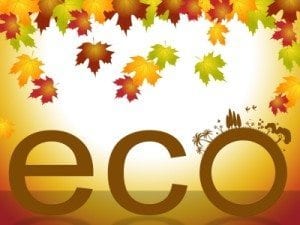MBTI® Test ISTJ Environmental Science and Protection Technicians
Strong Interest Inventory® General Occupational Theme Code: Investigative, Realistic, Conventional (IRC) (GOT)
Occupations requiring specific skills and qualities are often associated with specific types of people—more specifically, these occupations associate strongly with certain Myers-Briggs Test Type Indicator® (MBTI® test) personality types. Introverted-Sensing-Thinking-Judging (ISTJ) MBTI test types, for example, are often well fit as environmental science and protection technicians because of their analytical minds, love for gathering data, and tendency to use facts to form opinions or answer questions.

Image courtesy of Stuart Miles at FreeDigitalPhotos.net
Environmental science and protection technicians inhabit a range of tasks, including conducting field tests, examining potential pollution outlets, and collecting materials for environmental experiments and tests. Due to the scope of their work, these technicians can go by any number of titles, including environmental specialist, public health sanitarian, or laboratory technician—it all depends on the tasks they spend most of their time doing.
An environmental science and protection technician’s duties run the gamut from physical collection of materials to in-depth analysis of these specimens. They often collect gases, soils, water, waste, or poisonous samples in order to ascertain certain dangerous substances, often involving pollution. They also may organize new procedures to prevent, monitor, or maintain current pollution threats. In some cases, they provide information to programs or government representatives or convey technical information in a way that is comprehensible easily and quickly to non-specialists. These technicians often work with specific equipment to discover their findings, including samplers, flowmeters, pumps, and special measuring tools. Furthermore, they can also spend their time in a laboratory conducting analysis of their findings, often on microscopes and other laboratory equipment. In addition, they also use a variety of different kinds of analytical and scientific software (e.g., FishXing, flood modeling, etc.), computer aided design software, and map creation software (e.g., ESRI ArcView). These days, Microsoft Office Suite and its Google equivalents are also highly necessary.
-
MBTI® Career Report
Price: $62.95 Buy NowDIGITAL DELIVERY
- Receive an in-depth 10-page report on your occupational matches
- Explore your preferred work tasks, environments, and industry matches
- Assessment sent digitally within 2-3 business hours of purchase
In order to excel at this occupation, individuals generally have a working knowledge of chemistry (including chemical composition and processes they may encounter with their materials), mathematics, biology, physics, and engineering, as well as familiarity with current public safety codes and laws. They also maintain good interpersonal skills (as they can often work for clients or customers), critical thinking skills, objective reasoning, and problem solving abilities. Most positions in this occupation field require a Bachelor’s degree or higher, but there are occasionally instances where a degree is not necessary. A background in environmental science, however, is crucial.
Below are some employment trends for Environmental Science and Protection Technicians:
- Median wage: $22.38 hourly, $46,540 annually
- Employment: 34,800 employees
- Projected growth (2018-2028): Faster than average (7% to 10%)
- Projected job openings (2018-2028): 4,600
Visit Our MBTI® About Page and Our ISTJ Personality Type Page For Detailed Information on The ISTJ Personality Type
Visit Our Strong Interest Inventory® Resource Page To Learn About The (IRC) GOT
Click on one of these corresponding popular ISTJ Careers for detailed information including Career Stats, Income Stats, Daily Tasks and Required Education: Accountant, Air Traffic Controller, Aircraft Mechanic / Service Technician, Civil Engineer, Environmental Science & Protection Tech, Nuclear Power Reactor Operator, Security Guard, Supervisor of Correctional Officers, Tax Examiner / Collector / Revenue Agent, and Transportation Inspector.
Explore Our ISTJ Blog Pages
Explore additional information that delves deeper into the ISTJ Personality Type by examining various personality and career based subjects:
- Myers-Briggs test ISTJ Personality Type and Innovation Styles Blog
- Myers-Briggs test ISTJ Personality Type and Project Management Blog
- Myers-Briggs test ISTJ Personality Type Emotional Intelligence Blog
- Myers-Briggs test ISTJ Personality Type and Leadership Blog
- Myers-Briggs test ISTJ Personality Type and Communication Blog
Click on a link below to read more about different MBTI Personality Types
| ISTJ | ISFJ | INFJ | INTJ | ESTP | ESFP | ENFP | ENTP |
| ISTP | ISFP | INFP | INTP | ESTJ | ESFJ | ENFJ | ENTJ |
References:
- Bureau of Labor Statistics wage data and 2012-2022 employment projections Onetonline.org
- MBTI® Type Tables for Occupations, 2nd Edition. Schaubhut, N. & Thompson, R. (CPP, 2008)

